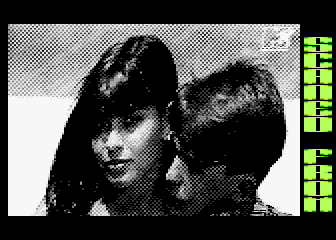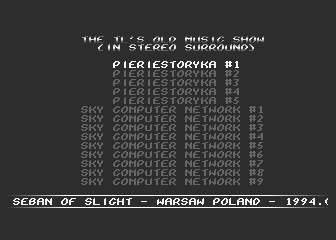@Fox: w takim razie to co jest w Atariki:
http://atariki.krap.pl/index.php/Rejestry_POKEY-a
dokładnie chodzi o to:
dla zegara wejściowego o częstotliwości 1/28 lub 1/114 częstotliwości głównej: F = CLOCK/(2*(N+1)). okazuje się bzdurą?
--------------------> EDIT <--------------------
Ok, zrobiłem mały test... generalnie częstotliwość generowania IRQ przez POKEY w tym wypadku jest równa:
F=CLOCK/(N+1) ... czy ma być +1 jeszcze dokładnie nie sprawdziłem... poniżej kod... oscylogramy za chwilę jak znajdę soft do mojego zabytkowego oscyloskopu.
org $2000
frq equ $14b
st sei
inc $d40e
ldx $d40b
bne *-3
stx $d400
dex
txs
dex
stx $d301
ldx <irq
ldy >irq
stx $fffe
sty $ffff
lda #$03
sta $d20f
lda #%00011001
sta $d208
ldx <frq
ldy >frq
stx $d204
sty $d206
cli
lda #$04
sta $d20e
lda $d302
and #[$04^$ff]
sta $d302
ldx #%00000001
stx $d300
ora #$04
sta $d302
lda #$a8
sta $d207
jmp *
irq pha
;e lda #$01
; sta $d300
; eor #$01
; sta e+1
; asl @
; asl @
; asl @
; sta $d01f
lda #$01
sta $d300
:64 sta $d40a
lda #$00
sta $d300
lda #$00
sta $d20e
lda #$04
sta $d20e
pla
rti
run st
